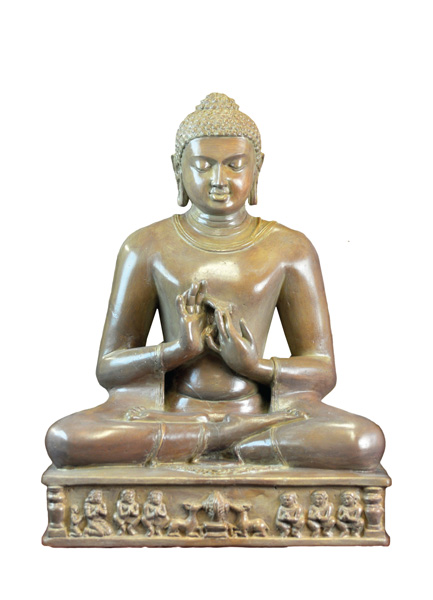A new essay:
What Did the Buddha Think of Women?
Buddhism is widely know throughout the world as a religion of peace and kindness. Unfortunately it is less known as a religion of equal regard for both genders. And in fact many Buddhists throughout the world are taught that women because of their characteristic karmic dispositions are incapable of awakening or of becoming a buddha, at least without first being reborn as a man. Furthermore few women have gone down in Asian history as teachers, yogis and thinkers; the great Indian scholar-monks were all exactly that, monks, and the ordination and transmission lineages tracked in East Asia list one man after another. The Theravada tradition managed completely to have misplaced its order of fully ordained nuns and the Tibetan never had one, leaving a decidedly lopsided Sangha throughout much of Asia and very limited opportunities for women to receive the support and respect that nourishes the highest aspirations of the Buddhist Sangha.
Moreover the Buddha himself has been commonly implicated in this bias. For instance, although he created a twofold Sangha of monks and nuns, he is said to have done so reluctantly and he clearly did create a degree of dependency of the latter order on the former. He is also reported to have said,
… in whatever religion women are ordained, that religion will not last long. As families that have more women than men are easily destroyed by robbers, as a plentiful rice-field once infested by rice worms will not long remain, as a sugarcane field invaded by red rust will not long remain, even so the True Dharma will not last long.
Nonetheless, that the Buddha would harbor the slightest bit of ill-will toward women flies in the face of the complete awakening of the Buddha, which entails that he was utterly pure of thought, kind and well disposed to a fault, completely without defilement or bias of any sort, toward any living being you may spot. It is true that the authenticity of many of the passages that have been attributed in this regard to the Buddha in the early scriptures has in fact been questioned in modern scholarship. Nonetheless even if we accept these scholarly arguments we can indulge no more than a provisional sigh of relief, for we must then attribute these passages to very early disciples of the Buddha, to monks with the respect and authority needed to shape the already widely disseminated early scriptures, probably to arahants. What gives?

Leave a Reply